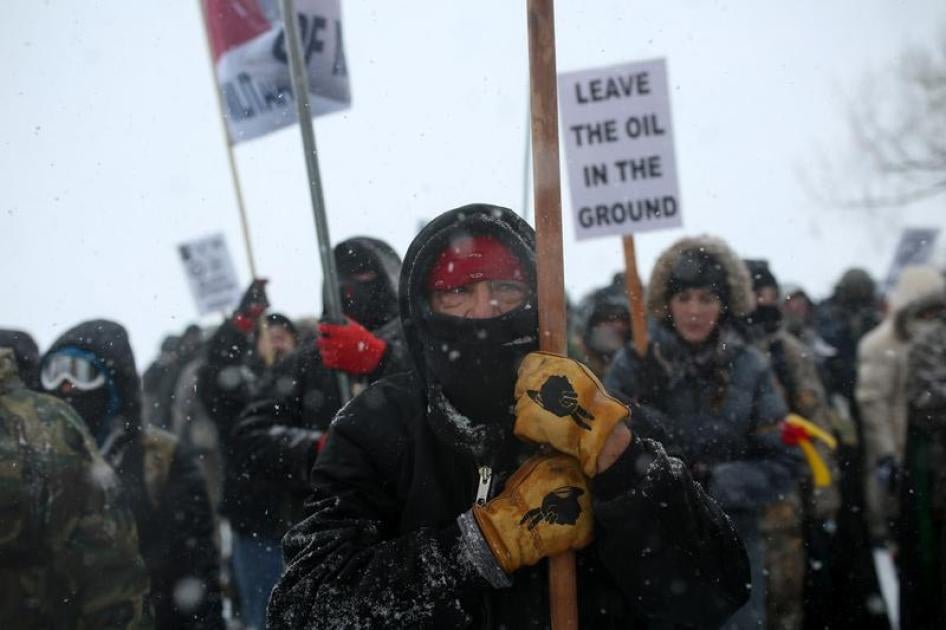On the afternoon of February 23, about 200 police officers entered the Oceti Sakowin camp near Cannon Ball, North Dakota. They arrived in armored cars, carrying weapons, and arrested about 46 people – the last remaining protestors from an 11-month demonstration against the North Dakota Access Pipeline and its planned route under the Missouri River, which nearby Sioux communities worry will threaten sacred sites and pollute their water.
Media and activists tweeting about their last few days in camp called it #StandingRocksLastStand.
But the Standing Rock movement, which maintains that the US government failed to consult adequately with tribal authorities before greenlighting the project, continues. This Friday in Washington, DC, members of the Standing Rock Sioux Tribe, indigenous environmental activists, and allies will march to demand respect for indigenous rights, including their cultural rights and right to water, which for many indigenous peoples have a spiritual significance that bestows a responsibility to protect.
Last week the UN Special Rapporteur on the Rights of Indigenous Peoples wrapped up her official visit to the United States, where she met with tribal communities and leaders across the country, including at Standing Rock.
She found that the current US regulatory regime has failed to properly consult with tribal governments on energy projects, not only at Standing Rock but elsewhere. She also highlighted “the criminalization of indigenous peoples asserting their right to protest.”
It’s worth noting that the same afternoon officers cleared the camp,
North Dakota governor Doug Burman signed into law three bills that will seriously impact future protests: they expanded criminal trespass laws, scaled up criminal penalties for rioting, and criminalized wearing masks and hoods while violating the law (though nearly everyone covers their faces and heads outdoors during the long and frigid Dakota winter).
Republican lawmakers have introduced bills supposedly aimed at curbing violence or protecting public safety during protests in at least sixteen other states, making it clear that threats to the rights of one group can quickly spread to others. The bills are at best a solution in search of a problem, and at worst a very pointed attempt to curb and punish public protest.
Oceti Sakowin may have closed, but Standing Rock’s next stand deserves our support. The fight to protect indigenous rights — and all peoples’ right to peaceful protest — doesn’t end in North Dakota.







